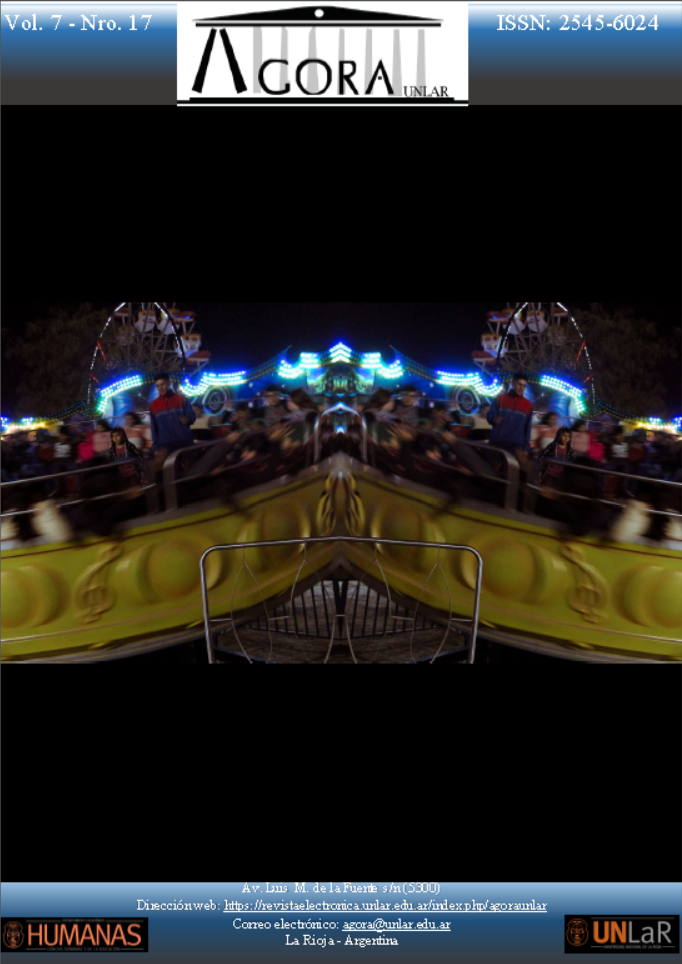Una nueva hegemonía en la Universidad Nacional de La Rioja en 2013: emergencia de la conflictividad y articulación de demandas
Palabras clave:
hegemonía, UNLaR, democracia, Teoría del DiscursoResumen
En este artículo se analiza el proceso de articulación hegemónica que tuvo lugar en la Universidad Nacional de La Rioja (en adelante UNLaR) en 2013 denominado “La Toma”. Este movimiento derribó un régimen de más de 20 años. La UNLaR vivió una crisis institucional sin precedentes, que implicó “La Toma” de la Universidad y la destitución de las autoridades con una nueva institucionalidad propuesta desde las bases en período de normalización y diseño de nuevo estatuto universitario.El origen del conflicto radicó en una serie de irregularidades de diverso tipo extendidas en el tiempo, que dieron lugar a la emergencia y visibilización de un conjunto de estos malestares latentes, acallados durante años. La puesta en escena pública de estos malestares, que atravesaban a los cuatro estamentos, posibilitó la articulación de demandas de docentes, estudiantes, graduados y no docentes, hasta entonces absolutamente aislados unos de otros. Hasta el 2013, el rector Enrique Tello Roldan llevaba 21 años de gobierno. El régimen tellista fue hegemónico durante ese tiempo y se constituyó en el exterior constitutivo del movimiento reformista que se articuló en torno al significante “democratización de la UNLaR”.En función de lo descripto, este trabajo intenta mostrar como emerge este proceso que establece su articulación en la significante democratización y que produce un sujeto político universitario generando rupturas y continuidades. A new hegemony at La Rioja National College in 2013: emergence of the conflict and articulation of demandsAbstractThis article analyzes the new hegemony process that took place at the National University of La Rioja (from now on UNLaR) in 2013 and which was called "La Toma". This movement brought down a more than 20-year-old regime. The UNLaR experienced an unprecedented institutional crisis, which involved “La Toma” of the university and the authorities’ dismissal with a new institutional framework proposed from the grassroots in a period of normalization and design of a new university statute.This origin of this conflict lied in a series of irregularities of various types, spread over time, which gave rise to the emergence and visibility of a set of latent discomforts that had been silenced for years. The public presentation of these concerns, which affected the four strata, made it possible to articulate the demands of teachers, students, graduates and non-teaching stuff, until then completely isolated from each other. Until 2013, the head of the university Enrique Tello Roldan had been in office for 21 years. During that time, his regime was hegemonic and became the constituent exterior of the reformist movement that was articulated around the signifier "democratization of the UNLaR".Based on what has been described, this paper attempts to show the emergence of this process, which establishes its articulation in the signifier democratization, and produces a university political subject, generating ruptures and continuitiesKeywords: hegemony, UNLaR, democracy, Theory of DiscourseDescargas
Publicado
30-11-2022
Número
Sección
ARTÍCULOS DE INVESTIGACIÓN O REVISIÓN TEÓRICA





